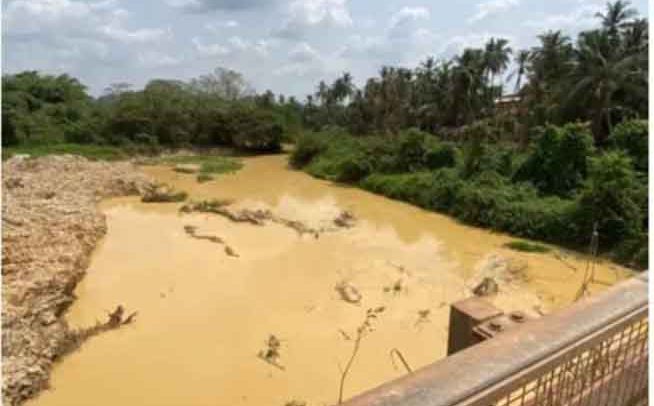Water treatment plants in some parts of the country have been shut down, the outcome of increased demand for chemicals to address the high rate of water pollution.
The Ghana Water Limited (GWL) is unable to cope with the quantity of degradation of water as occasioned by illegal mining or galamsey.
The whopping cost increase, according to GWL, is to enable them cope with the extra cost of purchasing the relevant chemicals to treat the muddied and contaminated water originating from galamsey sites.
Downplaying the menace of galamsey should not be tolerated at all. This is a subject which transcends politics.
It is unfortunate however that the subject has been politicised; this has added to the intractable state of the issue.
Galamsey can only be addressed when we succeed in depoliticising it and sincerely so.
Leaving it to play out as though it is a pin pong game would not get us near a solution.
Unfortunately, the major parties who alternatively manage the affairs of this country are yet to appreciate the importance of such depoliticisation.
Until we reach the Promised Land of a galamsey-free Ghana, we would continue to go round in a circle; a solution remaining out of reach as the youth and others engaged in the illegality dig in.
Water is life and anything which threatens its quality should be resisted forcefully.
Queries have been raised about whether or not chemical treatment of galamsey contaminated water is enough to ensure the high quality of what comes out of our taps.
We are neither biochemists nor chemists, but we can vouch that the mercury being administered to suspected gold-bearing mud or sand from river beds or the forests will no matter how small find their way into the guts of fish we consume or raw water diverted to GWL treatment plants. Such contaminated water can even reach the Atlantic Ocean, somewhat its effects for now unknown.
Perhaps it is time our water quality chemists subject the water we consume to further scrutiny as the incidence of galamsey heightens in the country.
The actors are nowhere ready to abandon the trade; it is high time that alternative means of challenging the status quo is sought.
People in urban settings might feel protected from the menace of galamsey, but they are definitely wrong. The sources of the water which are consumed by residents of these areas originate from the Densus, Ankobras, Birims, Pras and others; active galamsey areas which are so heavily polluted that the GWL seeks tariff hikes to meet the increased cost of treatment.
The galamsey menace has peaked and demands radical response from not only the government but all Ghanaians.
Last week, the picture of a multi-storey building trended on social media. The structure had a deep gush under it; galamseyers had dug under the building to scoop out suspected gold-bearing soil, leaving the house vulnerable to an imminent collapse.
The fallouts from galamsey are many, all of them ominous and therefore requiring sincere and all-embracing frontal attack to eliminate.


